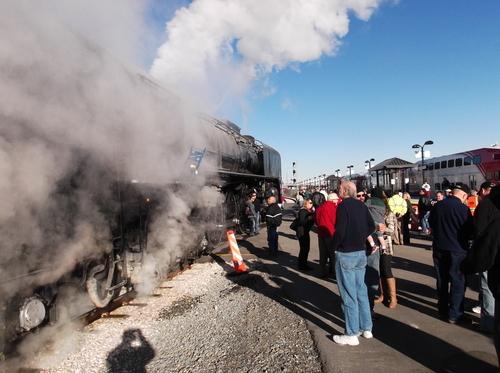This is an archived article that was published on sltrib.com in 2012, and information in the article may be outdated. It is provided only for personal research purposes and may not be reprinted.
Union Pacific Railroad Co. has agreed to pay $1.5 million for pollution violations at its facilities in Utah and two other states.
The U.S. Environmental Protection Agency said Thursday the case involves operations at 20 rail yards in Utah, Colorado and Wyoming, along with oil and coal spills on railroad lines in all three states.
EPA regional administrator Jim Martin said the deal will help prevent spills, protect water quality and improve the safety of the company's operations in 20 communities.
"Union Pacific has already begun putting necessary measures in place," said Martin, "and we will ensure they continue to do so."
The EPA had accused Union Pacific of violating federal regulations considered the first line of defense for preventing and containing oil spills.
The settlement is related to several locations in Utah, including a 4,000-gallon spill of diesel fuel that contaminated Soldier Creek in eastern Utah, said the EPA's Donna Inman, who worked on the case. The agreement also pointed out the need for better backup containment in the case of a spill at Helper, Ogden, Provo, Summit and Salt Lake City North rail yards, she said.
The Nebraska-based company will pay a $1.5 million civil penalty, with about $1.4 million going into the Oil Spill Liability Trust Fund, an account used for spill response. The remainder, for the coal spills and storm-water violations, will be deposited in the U.S. Treasury.
In addition, the settlement requires the company to update its plans for complying with regulations in the rail yards and address storm-water pollution at the Burnham Rail Yard in Denver.
"Union Pacific is working to ensure our response plans are up-to-date across our entire network and that our derailment response is as swift as possible while at the same time conforming to all applicable environmental laws," said company spokesman Tom Lange. "We are committed to protecting the environment now and for future generations. Our employees, customers, shareholders and the communities we serve can expect our full compliance with all laws and regulations."
The EPA said most of 20 locations cited in the settlement are in disadvantaged areas, where there are significant low-income and/or minority populations.
Twitter: judyfutah



